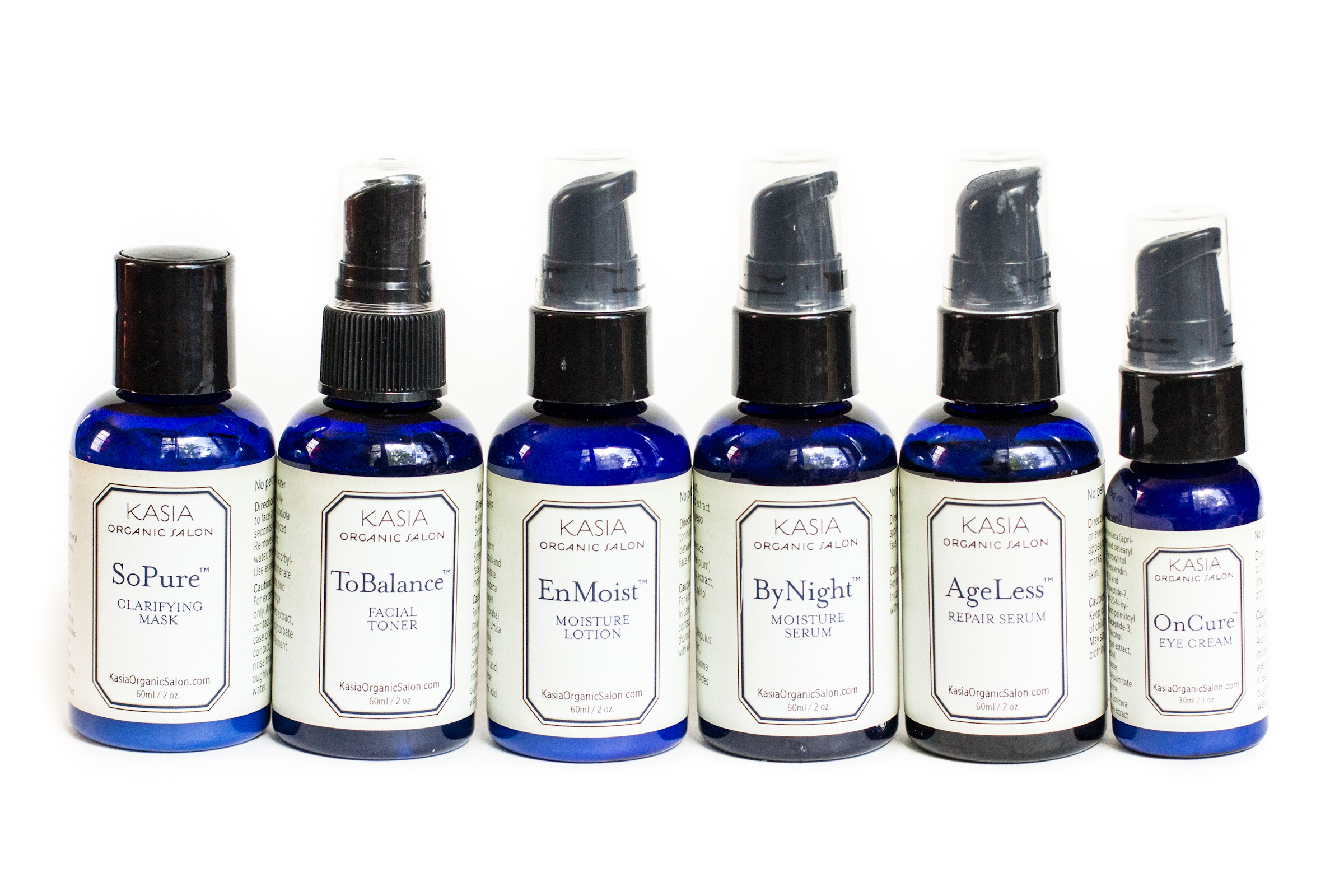Q. How Can I Lessen the Amount of Chemicals I Use On My Sensitive Skin?

Truth: Consumers are growing more concerned about what they put on their skin and what they put in their body.
Truth: According to scientific definition ALL of nature is made of chemicals.
I believe …
-It’s important to educate yourself on product ingredients to minimize or eliminate the use of irritants and harmful ingredients that are used in skin care products.
-Get the best of both worlds! We now have the ability to extract the best benefits that nature AND science offer. There are skin benefits to using both naturally derived ingredients and ingredients added scientifically.
- Get results that are consistent, nourishing to your skin’s health, and a routine to stay the course for fabulous skin.
-When choosing products for your skin, you should choose by your own personal belief system of how you want to care for yourself. We want what’s best for you.
-Most people would prefer to avoid taking prescription medication for their skin. There are great effective skin care products and professional skin treatments available to achieve this. Dedication is key!
- Many women claim to have sensitive skin. Much of the time it’s because skin irritation occurs with their (harsh) products.
What we use in Kasia Beautiful Health Skin Care products
-Effective, lightweight, non-pore clogging
-Pure essential oils, herbal and botanical plant extracts
-Pure, cold processed plant carrier oils -Performance ingredients through peptides, botanicals, and more for effective results
-Special delivery vehicles (Ex: Liposomes and Phospholipids to enhance penetration and absorption)
-Anti-inflammatory ingredients
-Performance ingredients through peptides, botanicals, and more for effective results
-Special delivery vehicles (Ex: Liposomes and Phospholipids to enhance penetration and absorption)
-Anti-inflammatory ingredients
What we avoid in Kasia Beautiful Health Skin Care products
-Mineral Oil & Petrolatum (Pore-clogging and suffocating to the skin) -SD Alcohol 40 and Denatured Alcohol (The “bad” alcohols commonly found in toners. They are extremely drying) -Isopropyl Myristate & Isopropyl Palmitate (Can cause blackheads) -Synthetic dyes (Can be a skin irritant) -Synthetic fragrances in our skin care products (The main cause of allergic reactions to products. Avoid products with “fragrance” or “parfum” on the ingredient listing) -Heavy oils (Suffocates the skin and leave it feeling greasy) -Sodium or Ammonium Laureth/Lauryl Sulfate (Extremely drying and irritating to the skin) -Parabens: Parabens are chemicals used as preservatives, and that’s why they are found in so many products. They are used to fight bacteria and fungus, are widely available, and cost very little to manufacture and use. Nearly all of the parabens used as preservatives are man-made and not naturally occurring.
**The TRICK to reading natural and organic ingredient claims. Looking at a deeper level, be AWARE of ingredient names claiming its toxic.
It is important to put the big picture into view when reading ingredients. The key to any study or claim is to know at what percentage of ingredients were used in the testing.
For example, an ingredient used at 5% or higher may claim to be harmful but if an ingredient is under 5% then it could very well be safe. It all boils down to percentages used in a product and unfortunately, the consumer doesn’t have access to this by looking at a list of ingredients.
Skin care ingredients are just not black or white and can be very complicated. I do believe that the above list of ingredients that I listed you to avoid are generally not beneficial to the skin–in any percentage. In addition, there are certain impure forms of certain contaminant ingredients that may contain carcinogens but when you only use the pure forms, these do not contain carcinogens whatsoever. So even though you hear an ingredient is bad, doesn’t necessarily mean this is the case in all products.

